| Coach | NA |
| Venue | Dietmar-Scholze-Stadion an der Lohmühle |
VfB Lubeck Trivia
VfB Lubeck predictions
Predictions for VfB Lubeck: See upcoming and historic predictions for VfB Lubeck below.
Disclaimer: Past performance does not guarantee future results. Betting involves risk; only wager what you can afford to lose. Always gamble responsibly.
VfB Lubeck latest results
| 13/04 | - | ||
| 06/04 | - | ||
| 31/03 | 1 - 0 | ||
| 16/03 | 1 - 0 | ||
| 02/03 | 0 - 0 |
3. Liga standings
| Rank | Team | MP | W | D | L | GF | GA | GD | Pts |
|---|---|---|---|---|---|---|---|---|---|
| 1 |
 Jahn Regensburg
Jahn Regensburg
|
32 | 17 | 9 | 6 | 47 | 34 | 13 | 60 |
| 2 |
 SSV ULM 1846
SSV ULM 1846
|
31 | 16 | 8 | 7 | 50 | 34 | 16 | 56 |
| 3 |
 Preussen Munster
Preussen Munster
|
32 | 15 | 10 | 7 | 55 | 41 | 14 | 55 |
| 4 |
 Dynamo Dresden
Dynamo Dresden
|
31 | 17 | 3 | 11 | 49 | 31 | 18 | 54 |
| 5 |
 SV Sandhausen
SV Sandhausen
|
32 | 14 | 10 | 8 | 50 | 43 | 7 | 52 |
| 6 |
 Erzgebirge AUE
Erzgebirge AUE
|
32 | 13 | 10 | 9 | 41 | 39 | 2 | 49 |
| 7 |
 Rot-weiss Essen
Rot-weiss Essen
|
30 | 14 | 5 | 11 | 45 | 44 | 1 | 47 |
| 8 |
 SpVgg Unterhaching
SpVgg Unterhaching
|
31 | 13 | 7 | 11 | 40 | 40 | 0 | 46 |
| 9 |
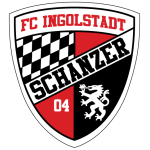 FC Ingolstadt 04
FC Ingolstadt 04
|
32 | 12 | 9 | 11 | 54 | 43 | 11 | 45 |
| 10 |
 Borussia Dortmund II
Borussia Dortmund II
|
32 | 12 | 9 | 11 | 46 | 46 | 0 | 45 |
| 11 |
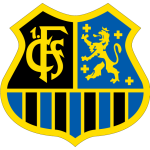 FC Saarbrücken
FC Saarbrücken
|
29 | 10 | 13 | 6 | 45 | 32 | 13 | 43 |
| 12 |
 Verl
Verl
|
32 | 11 | 10 | 11 | 50 | 49 | 1 | 43 |
| 13 |
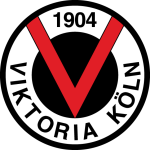 FC Viktoria Koln
FC Viktoria Koln
|
32 | 11 | 9 | 12 | 49 | 54 | -5 | 42 |
| 14 |
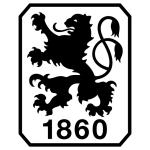 TSV 1860 Munich
TSV 1860 Munich
|
32 | 12 | 5 | 15 | 36 | 34 | 2 | 41 |
| 15 |
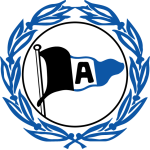 Arminia Bielefeld
Arminia Bielefeld
|
32 | 9 | 10 | 13 | 43 | 44 | -1 | 37 |
| 16 |
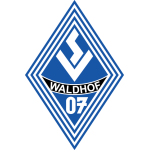 Waldhof Mannheim
Waldhof Mannheim
|
32 | 10 | 7 | 15 | 44 | 51 | -7 | 37 |
| 17 |
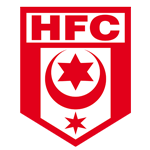 Hallescher FC
Hallescher FC
|
31 | 9 | 5 | 17 | 45 | 60 | -15 | 32 |
| 18 |
 MSV Duisburg
MSV Duisburg
|
31 | 7 | 8 | 16 | 31 | 46 | -15 | 29 |
| 19 |
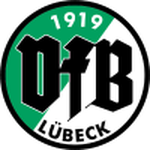 VfB Lubeck
VfB Lubeck
|
32 | 5 | 12 | 15 | 27 | 56 | -29 | 27 |
| 20 |
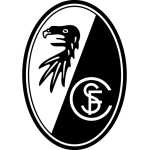 Freiburg II
Freiburg II
|
32 | 6 | 5 | 21 | 30 | 56 | -26 | 23 |
About VfB Lubeck
VfB Lübeck is a renowned football club based in Lübeck, Schleswig-Holstein, Germany. Founded in 1919, the club has a rich history and a strong fan base, making it one of the most recognized names in German football.
VfB Lübeck's journey began in the lower leagues of German football, but their consistent performances and determination led them to the higher tiers. The club's first significant achievement came in 1951 when they won the Schleswig-Holstein Cup. This victory marked the beginning of a successful era for VfB Lübeck, as they went on to win the cup several more times in the following years.
The club's golden era came in the late 1990s and early 2000s when they made their mark in the 2. Bundesliga, the second tier of German football. During this period, VfB Lübeck produced some outstanding performances, competing against some of the top teams in the country. The club's highest finish in the 2. Bundesliga came in the 2002-2003 season when they finished in 6th place.
VfB Lübeck's home ground is the Stadion Lohmühle, a venue with a capacity of over 17,000 spectators. The stadium has been the club's home since 1924 and has witnessed many memorable moments in VfB Lübeck's history.
Despite facing financial difficulties and relegation in the mid-2000s, VfB Lübeck has shown resilience and determination to bounce back. The club's youth development program has produced several talented players who have gone on to play in the top tiers of German and international football.
In recent years, VfB Lübeck has been competing in the Regionalliga Nord, the fourth tier of German football. The club won the league title in the 2019-2020 season, earning promotion to the 3. Liga, the third tier of German football. This marked a significant milestone in the club's recent history, highlighting their ambition to return to the higher levels of German football.
VfB Lübeck's team colors are green and white, and their mascot is a lion named Leo. The club's motto, "Mehr als Fußball" (More than Football), reflects their commitment to community engagement and social responsibility. VfB Lübeck is not just a football club; it is a symbol of pride and unity for the people of Lübeck.
Throughout its history, VfB Lübeck has shown a remarkable ability to overcome challenges and adapt to changing circumstances. The club's passion for football, commitment to its community, and determination to succeed make it a beloved institution in German football. As VfB Lübeck looks to the future, the club continues to strive for success on and off the pitch, embodying the spirit of "Mehr als Fußball".















